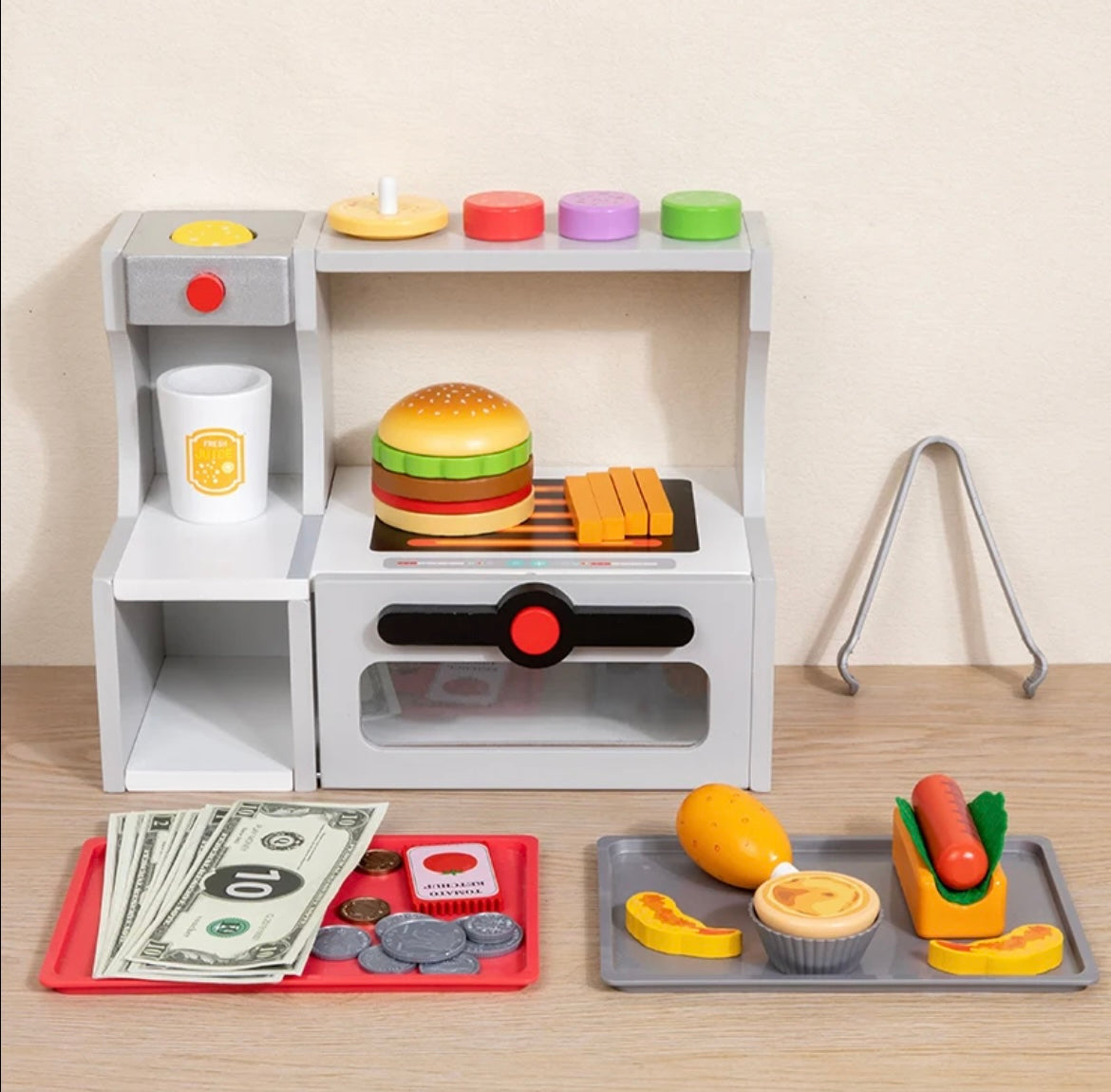1. Encourages Imagination and Creativity:
Pretend play (cooking) provides children with a canvas to unleash their imaginations and tap into their creative abilities. By pretending to be chefs, they can invent new dishes, experiment with flavors, and explore different culinary scenarios. This imaginative play nurtures their creativity, allowing them to think outside the box and develop innovative ideas.
2. Enhances Language and Communication Skills:
Engaging in pretend play (cooking) sparks conversations and encourages children to express themselves verbally. They learn to communicate ideas, describe recipes, and interact with playmates in a meaningful way. By taking on various roles in the kitchen, children widen their vocabulary, improve their language skills, and enhance their ability to articulate their thoughts effectively.
3. Develops Fine Motor Skills:
Playing cook involves a range of intricate actions, including slicing, stirring, pouring, and assembling play food. These activities require precise hand movements and coordination, which in turn help develop fine motor skills. By practicing these skills during pretend play (cooking), children strengthen their hand-eye coordination and prepare themselves for more advanced tasks in the future.
4. Fosters Social and Emotional Growth:
Pretend play (cooking) is often a collaborative activity, offering children the opportunity to engage with others, share responsibilities, and cooperate. They can take turns being the chef, waiter, or customer, fostering social skills such as teamwork, empathy, and problem-solving. Through these interactions, children also learn to manage their emotions, negotiate, and empathize with others.
5. Stimulates Cognitive Development:
Cooking involves various cognitive processes, such as planning, sequencing, and organizing. Pretend play (cooking) allows children to practice these skills as they plan menus, organize ingredients, and follow recipes. They develop their critical thinking abilities, mathematical concepts, and problem-solving skills while engaging in imaginative play.
Pretend play (cooking) offers numerous benefits to children's overall development. From fostering creativity and language skills to enhancing fine motor abilities and promoting social growth, this form of play is a valuable tool for learning and self-expression. As parents, we should embrace and encourage our children's love for pretend play (cooking), providing them with the freedom to explore, create, and learn in a safe and enjoyable environment. So, let us celebrate the wonders of pretend play (cooking) and witness the incredible growth and development it brings to our children's lives.
Remember, the kitchen can be a magical place where dreams are cooked up, friendships are formed, and lifelong skills are nourished. Embrace the joy and growth that pretend play (cooking) brings into your child's life!




